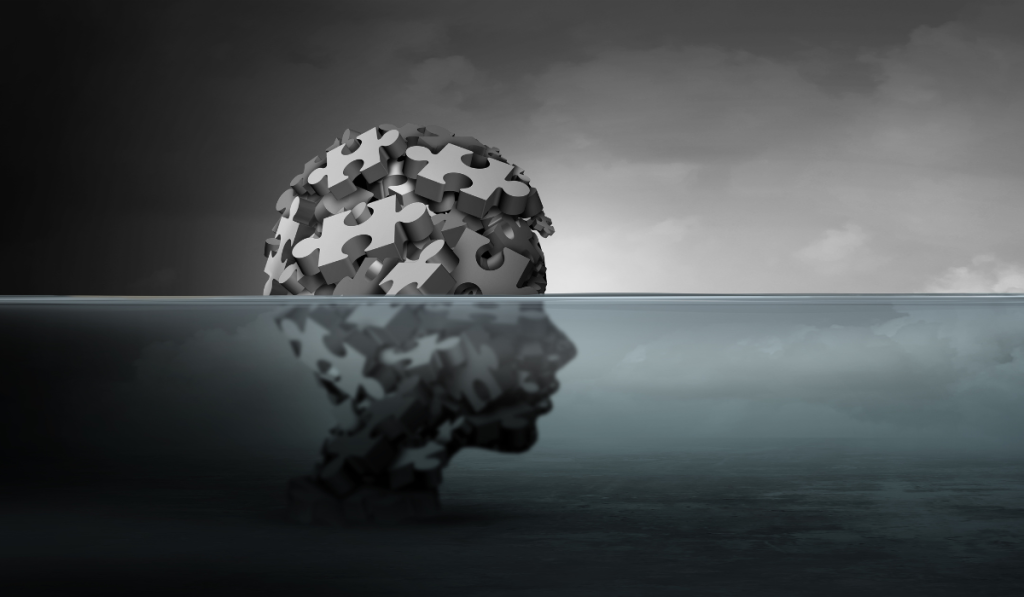Understanding Motivational Interviewing: How It Helps People Change
November 18, 2025
Finding Peace: Best Practices for Dealing With Grief During the Holiday Season
December 2, 2025
Depression is a complex mental health condition influenced by many different aspects of a person’s life. While no single cause explains why some individuals develop depression and others do not, researchers have identified several risk factors for depression that may contribute to its onset or intensify existing symptoms. Understanding what factors cause depression can help individuals recognize patterns, seek appropriate support, and make informed decisions about their mental health.
Below are several key factors—ranging from biological to environmental—that can play a significant role in depression. These explanations are not meant to alarm, but to empower readers with knowledge and clarity.
1. Genetics and Family History
One of the most well-established risk factors for depression is genetics. Individuals with a parent or sibling who has experienced depression are more likely to develop it themselves. This does not mean depression is guaranteed, but inherited traits may make someone more sensitive to stress, emotional changes, or certain environmental triggers. When people understand this link, they can monitor symptoms early and seek support proactively.
2. Brain Chemistry and Hormonal Changes
Chemical imbalances in neurotransmitters—such as serotonin, dopamine, and norepinephrine—may influence what factors cause depression. These chemicals play vital roles in regulating mood, motivation, and energy. When they are disrupted, depression can arise or worsen. Hormonal changes, such as those experienced during pregnancy, menopause, or thyroid conditions, can also contribute to mood imbalances. This factor highlights why medical evaluations are often part of a comprehensive mental health assessment.
3. Chronic Stress and Difficult Life Experiences
Prolonged stress is one of the most common contributors to what worsens depression. Stressors like financial problems, high-pressure work environments, caregiving responsibilities, or relationship conflict place significant strain on mental health. Over time, chronic stress can overwhelm coping skills and lead to depressive symptoms. Major life changes—such as grief, trauma, divorce, or job loss—can also be powerful triggers. Understanding this connection helps individuals recognize when it may be time to seek emotional support or therapy.
4. Physical Health Conditions
Chronic illnesses and medical conditions can influence both mood and energy levels. Conditions such as diabetes, chronic pain disorders, autoimmune diseases, heart disease, and hormonal imbalances often increase the likelihood of depression. For some individuals, the emotional toll of managing long-term health problems is a direct contributor. For others, disruptions in sleep, appetite, or energy caused by their illness play a role in what worsens depression. Treating underlying medical concerns can be an important part of mental health improvement.
5. Substances and Alcohol Use
There is a strong connection between substances and depression, as alcohol or drugs can significantly interfere with the brain’s natural regulation of mood and stress. While substances may provide temporary relief, they often worsen depressive symptoms over time. Alcohol is a depressant and can intensify sadness, fatigue, and hopelessness. Other substances, including stimulants and opioids, can disrupt brain chemistry and increase both emotional instability and withdrawal-related depression. Recognizing this relationship can encourage individuals to seek healthier coping strategies and professional support.
6. Lack of Social Support
Healthy relationships and supportive connections play a major role in emotional wellness. People who feel isolated or disconnected from others are more vulnerable to depression. Loneliness can distort thought patterns, increase feelings of worthlessness, and reduce motivation. Social support—whether through family, friends, support groups, or therapy—provides encouragement, a sense of belonging, and opportunities to share burdens. Strengthening social ties can significantly improve mood and resilience.
7. Poor Sleep Habits
Sleep is essential for emotional balance. When individuals regularly experience insomnia, irregular sleep patterns, or low-quality rest, depressive symptoms can worsen. Sleep deprivation affects concentration, irritability, appetite, and motivation—all areas linked to depression. In some cases, lack of sleep can even trigger depressive episodes. Addressing sleep routines, limiting screen time at night, and maintaining a consistent schedule may help regulate mood.
8. Seasons and Reduced Sunlight
Many people notice changes in their mood during the fall and winter months, often attributed to the shorter days and reduced sunlight. This is often referred to as Seasonal Affective Disorder (SAD), a condition directly connected to seasons and depression. Reduced sunlight can disrupt circadian rhythms and lower serotonin production, making individuals more susceptible to feelings of sadness, fatigue, and decreased motivation. Light therapy, vitamin D, and spending time outdoors can help reduce these seasonal effects.
9. Negative Thought Patterns
Lastly, cognitive factors play a significant role in what worsens depression. Persistent negative thoughts, self-criticism, and hopeless beliefs can intensify depressive symptoms. These thought patterns often develop gradually and may be influenced by past experiences or a lack of emotional support. Therapeutic approaches, such as cognitive behavioral therapy (CBT), are effective in helping individuals recognize and change these cycles.
Depression does not stem from a single cause, and experiencing one or more of these factors does not mean someone will develop it. Instead, understanding the many risk factors for depression can help individuals feel more informed and prepared when noticing shifts in their mental health. Recognizing what factors cause depression empowers people to take steps toward support—whether through therapy, lifestyle changes, or reaching out to trusted loved ones.
With knowledge and care, individuals can navigate depression with greater clarity and hope.
_________________________________________________________________________________
Looking for treatment for an eating disorder, anxiety, depression, trauma, or postpartum mood disorder?
Evolve Counseling Services is a specialized team of Licensed Therapists providing treatment in Paoli.



